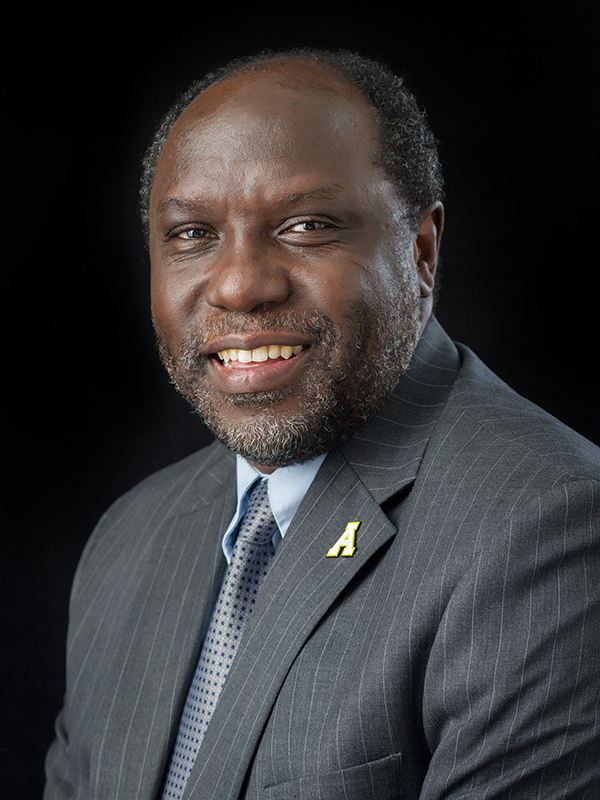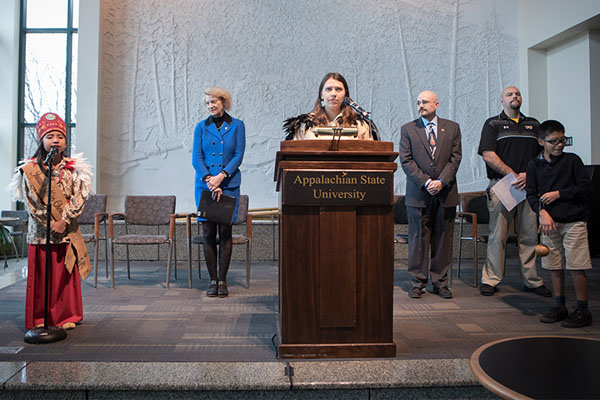High school students and community leaders from the North Carolina Cherokee and New Zealand Māori nations will exchange best practices for preserving language and culture during visits funded by a $100,000 grant awarded to App State.
BOONE, N.C. — A grant secured by Appalachian State University will facilitate visits by Cherokee high school students and community leaders to New Zealand in spring 2023 and by Māori high school students and community leaders to North Carolina in fall 2023. Students and educators from the two communities will exchange best practices for preserving each nation’s language and culture.
The grant project, “Similarities of Struggle: A Collaboration between the Cherokee in North Carolina and Māori in New Zealand,” was awarded $100,000 from the U.S. Department of State’s U.S. Embassy and Consulates in New Zealand.
The grant proposal was written by Dr. Jesse Lutabingwa, professor of public administration and associate vice chancellor in App State’s Office of International Education and Development, and Dr. J. Allen Bryant, associate professor of elementary education in the Department of Curriculum and Instruction and director of the Gadugi Partnership at App State. The partnership between App State and Cherokee Central Schools, founded in 2013, strives to prepare, support and sustain the future leaders of the Eastern Band of Cherokee Indians (EBCI) through coursework, service and cultural immersion.
“Historically, the Māori and the Cherokee people have proven themselves masters of the art of syncretism — successfully adopting Western technologies and cultural practices to their benefit while preserving the foundational principles of both Indigenous cultures,” said Lutabingwa, who will serve as the project director.
The project builds upon a decadeslong educational partnership between App State and the Ara Institute of Canterbury Ltd. (Ara) - New Zealand Institute of Skills and Technology.
“Our work with Ara exemplifies the kind of deep, multifaceted relationship we strive to establish with all of our global partners,” Lutabingwa said. “Grants like this one are key to accomplishing this goal.”
Māori trace their arrival in New Zealand (which they call Aotearoa) from their Polynesian homeland of Hawaiki more than 1,000 years ago. Today, Māori culture is an integral part of life in the country, though only a small percentage of New Zealanders speak the Māori language (Te Reo) fluently.
The New Zealand government has pledged to provide Te Reo lessons in all the nation’s schools by 2025, with the goal that 20% of the country’s population would achieve basic fluency in the language by 2040. Similarly, with less than 2% of the Eastern Band of Cherokee Indians (EBCI) estimated to speak Cherokee fluently, Eastern Cherokee government and educators are committed to changing this dynamic.
The App State–Ara project calls for Lutabingwa and Bryant to travel with a group of Cherokee High School students and faculty to New Zealand in the spring for meetings with Māori students and educators. They also will meet with community leaders, a well-known language revival strategist and a Māori musician whose song promoting Te Reo has appeared recently on the mainstream music charts in New Zealand.
Next fall, a group of Māori students and faculty will visit North Carolina to meet with Native American students at App State, as well as with Cherokee High School students and EBCI leaders at the Qualla Boundary, the federally recognized home of the Eastern Cherokee comprising 57,000 acres in Western North Carolina. They also will visit the Museum of the Cherokee Indian and meet with Cherokee elders along with developers of the innovative Your Grandmother’s Cherokee program used to promote the language.
Following each visit, members of the visiting delegation will develop an action plan to apply lessons learned from the visits to their respective communities and institutions. The project director and two project coordinators will monitor the implementation of these action plans and make sure that the dialogue between the two groups continues.
“This project will encourage participants not only to identify similar struggles their nations have experienced, but also to develop new strategies based on existing practices,” said Bryant, the project coordinator for App State. “It also will foster in all the students a global sense and perspective of indigeneity, while giving them a chance to develop their leadership skills and forge personal relationships with peers who share a strong cultural commitment.”
The awarded grant is administered by the Office of International Education and Development at App State.
What do you think?
Share your feedback on this story.
About the Office of International Programs
Appalachian State University combines a strong liberal arts foundation with a comprehensive, pervasive and integrated commitment to global engagement. The Office of International Programs assists App State in fulfilling its global engagement mission by working to develop awareness, knowledge, appreciation and respect of cultural differences — in both domestic and international contexts — in the university’s students, faculty and staff, as well as in the surrounding communities. Learn more at https://international.appstate.edu.
About Appalachian State University
As a premier public institution, Appalachian State University prepares students to lead purposeful lives. App State is one of 17 campuses in the University of North Carolina System, with a national reputation for innovative teaching and opening access to a high-quality, cost-effective education. The university enrolls more than 21,000 students, has a low student-to-faculty ratio and offers more than 150 undergraduate and 80 graduate majors at its Boone and Hickory campuses and through App State Online. Learn more at https://www.appstate.edu.








![How NCInnovation Is Rethinking Economic Development in North Carolina [faculty featured]](/_images/_posts/2026/02/rethinking-economic-development-600x400.jpg)







